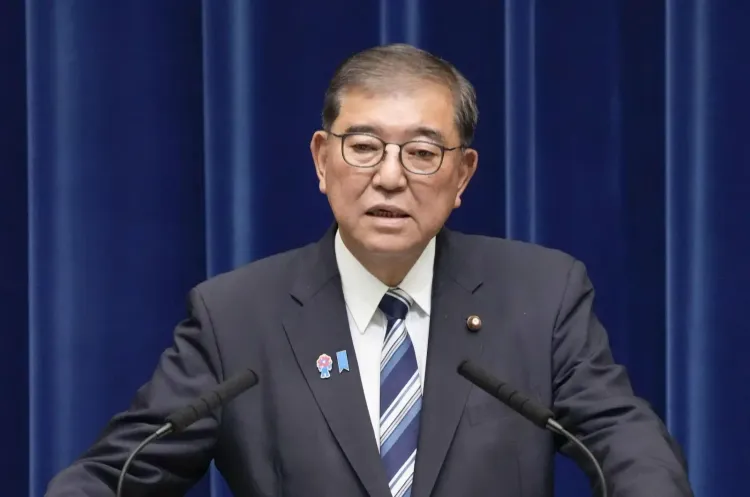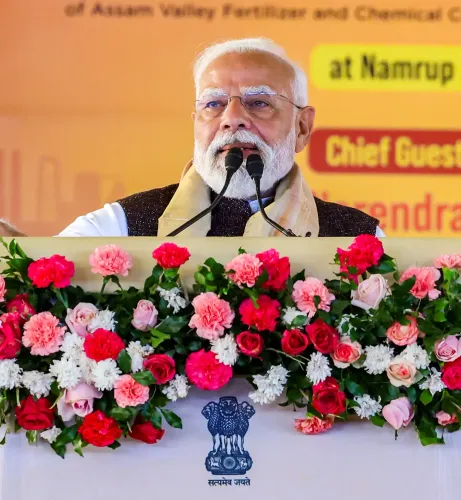Will South Korea Maintain Strong Ties with Japan After Ishiba's Resignation?

Synopsis
Key Takeaways
- South Korea is optimistic for future relations with Japan.
- Ishiba's resignation may create political uncertainty.
- Both nations are seeking to strengthen cooperation despite historical tensions.
- The boycott of the Sado mine ceremony highlights ongoing grievances.
- Future diplomatic engagement remains crucial.
Seoul, Sep 8 (NationPress) The presidential office of South Korea expressed optimism on Monday regarding the continuation of positive relations with Tokyo, following the announcement of Japanese Prime Minister Shigeru Ishiba's resignation due to electoral challenges.
A senior official indicated that South Korea and Japan have formed a significant consensus aimed at fostering future-oriented and stable ties.
Despite Ishiba's departure, the official stated, "We anticipate that the two nations will sustain positive relations moving ahead."
The presidential office is actively monitoring the implications of Ishiba's resignation but has chosen not to delve into Japan's internal political matters.
In late August, South Korean President Lee Jae Myung visited Tokyo for discussions with Ishiba, where both leaders committed to enhancing cooperation.
However, tensions persist as Seoul recently opted out of Japan's forthcoming ceremony commemorating the Sado mine, associated with wartime forced labor, due to Tokyo's perceived insincerity in acknowledging the victims, as reported by Yonhap news agency.
On Sunday, Ishiba revealed his decision to resign, succumbing to increasing pressure within the Liberal Democratic Party (LDP) to take accountability for recent electoral defeats, thus concluding his 11-month leadership, according to local media.
During a televised press conference, the 68-year-old Ishiba stated, "I have decided to step down as president of the Liberal Democratic Party." He further instructed Secretary-General Moriyama to initiate the procedures for a presidential election.
Having taken office last October, Ishiba had resisted resignation calls for several weeks.
He cautioned that his exit could result in a political void as Japan contends with significant challenges, including U.S. tariffs, rising prices, and increasing regional tensions.
Ishiba's resignation was announced just a day prior to a scheduled decision by the LDP on an early presidential election.
This decision followed a notable defeat in the recent Upper House elections, which saw the LDP-Komeito coalition lose its majority, as reported by The Japan Times.
Until recently, Ishiba was resolute in his desire to remain in power and address pressing issues, particularly within the economic arena.
As of Friday, he had reiterated his commitment to spearhead the government's implementation of an economic stimulus package in the upcoming months.
Nevertheless, calls for his resignation had intensified within the party, with senior figures urging him to step down prior to the leadership vote to prevent further divisions.










